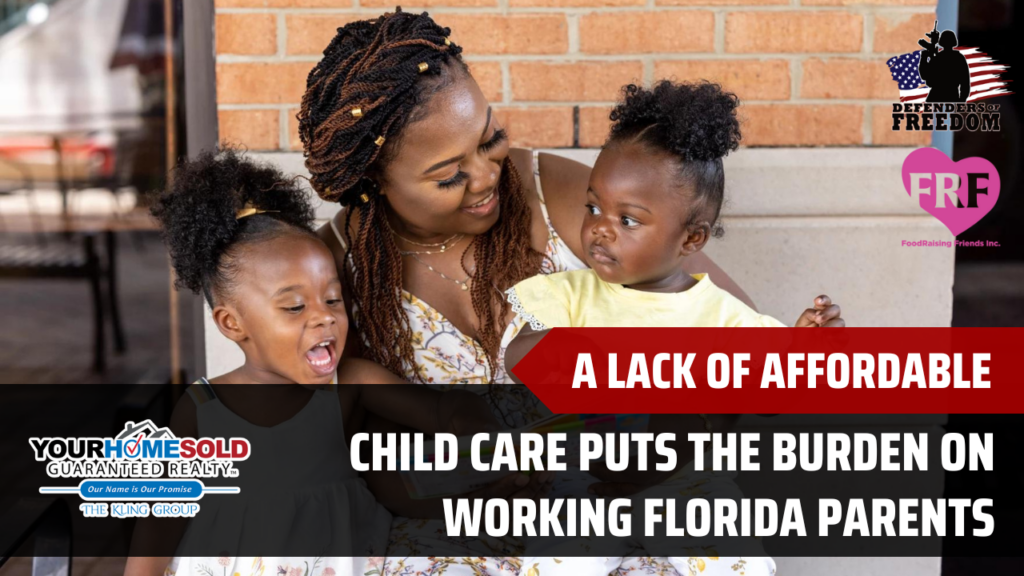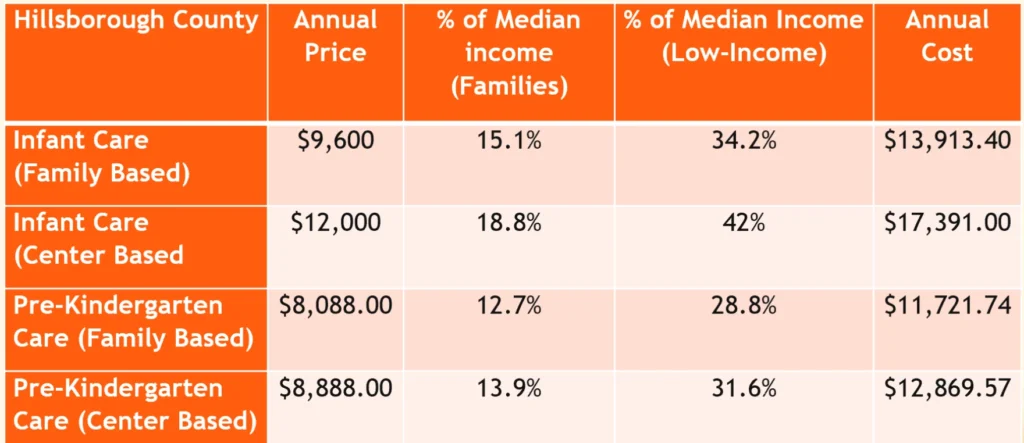
A lack of affordable child care puts the burden on working Florida parents

The financial burden of child care in Florida, particularly for infants and toddlers, has become a significant obstacle for many working parents. In Hillsborough County, alarming data reveals that the annual cost of infant care can soar up to $12,000, while pre-kindergarten care can reach a staggering $8,000, as reported in the latest community needs assessment conducted by the Early Learning Coalition. This financial strain is not only affecting individual families but is also taking a toll on Florida’s economy, with the Florida Chamber of Commerce estimating an annual loss of $5.38 billion due to childcare-related issues.

The Personal Toll on Families:
Hillsborough’s Early Learning Coalition CEO, Fred Hicks, emphasizes the impact on families, stating that the high cost of child care often consumes a substantial portion of their take-home pay. The situation has led some parents to make the difficult decision to leave the workforce entirely, as they find themselves working solely to cover childcare expenses, without breaking even.
Economic Consequences:
The withdrawal of parents from the workforce is contributing to a broader economic challenge in Florida. Children’s Movement of Florida CEO, Madeleine Thakur, notes that parents across the state express a desire to return to work, but the exorbitant cost of child care for multiple children often makes it financially impractical. The Florida Chamber of Commerce estimates the significant economic impact, emphasizing the urgency for viable solutions.
Existing Assistance Programs:
While state and federal programs aim to address childcare costs, not all parents qualify for assistance. Thakur points to the example of Florida’s School Readiness Program, highlighting that its eligibility criteria may exclude many working families. The current income thresholds, tied to the federal poverty line, may leave two-parent households earning minimum wage ineligible for support, further exacerbating the problem.
Proposed Solutions:
Thakur advocates for a reassessment of eligibility thresholds, suggesting that raising them could extend assistance to more families. However, she acknowledges that such a change would necessitate increased overall investment in childcare programs. Additionally, she expresses optimism about innovative policy proposals in Florida, such as HB 635, which introduces early learning tax credits for employers providing child care support for their employees.
Conclusion:
As Florida grapples with the escalating cost of child care, it is evident that a comprehensive approach is needed to address the challenges faced by working parents. Balancing eligibility thresholds, exploring tax incentives for employers, and increasing overall investment are crucial steps toward creating a system that supports families, fosters workforce participation, and ensures the well-being of Florida’s economy.
Copyright 2024 WUSF 89.7. To see more, visit WUSF 89.7.
Source: https://www.wlrn.org/business/2024-01-03/affordable-child-care-working-parents
For all your real estate needs or to learn more about how we are making a difference in the community, please visit our website. Additionally, we invite you to join us in supporting our foundation, Foodraising Friends, dedicated to combating food insecurity and making a positive impact in the lives of those in need. Your support and engagement can make a real difference in our community. Visit us today and see how you can get involved!

A lack of affordable child care puts the burden on working Florida parents



